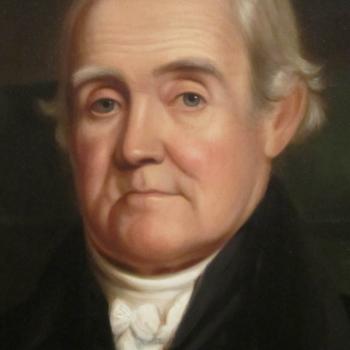Dictionary author Noah Webster was born in 1758.

Event Description
Noah Webster, called the father of the American dictionary, was born on October 16, 1758, in Connecticut. Believing that American students should not have to use British textbooks, he wrote A Grammatical Institute of English Language, which became the main source for spelling and grammar in the United States. He then began work on the first American dictionary, An American Dictionary of the English Language, which contained nearly 70,000 words by the time it was completed in 1828.
Classroom Activity
To celebrate Webster's birthday, try this variation of the popular board game Balderdash:
- Divide your class into groups of five or six. You will need one dictionary per group and a stack of blank paper cut into strips of about two inches each.
- One student in the group quickly scans through the pages in the dictionary and identifies a word that he or she believes no one has ever heard before. That student reads the word aloud and spells it. The other students in the group write down a definition for the word, either the real definition or a made-up definition that might fool others into thinking it is the real definition.
- The student with the dictionary writes the real definition on a slip of paper and then collects all the slips from the group. The student then reads each of the definitions created by others in the group, as well as the real definition.
- The students in the group then individually choose which of the definitions they believe is real. Points are awarded as follows: two points if you select the correct definition and one point for each time that someone else selects the definition that you wrote.
- Points are totaled and the next person in the circle selects a word from the dictionary. The game can continue for as long as you like.
Websites
This website offers a brief biography of Webster and his views on various political and educational topics.
The online version includes audio pronunciations, a thesaurus, Word of the Day, and word games.
This online dictionary includes illustrations and is an excellent resource for K–3 readers.